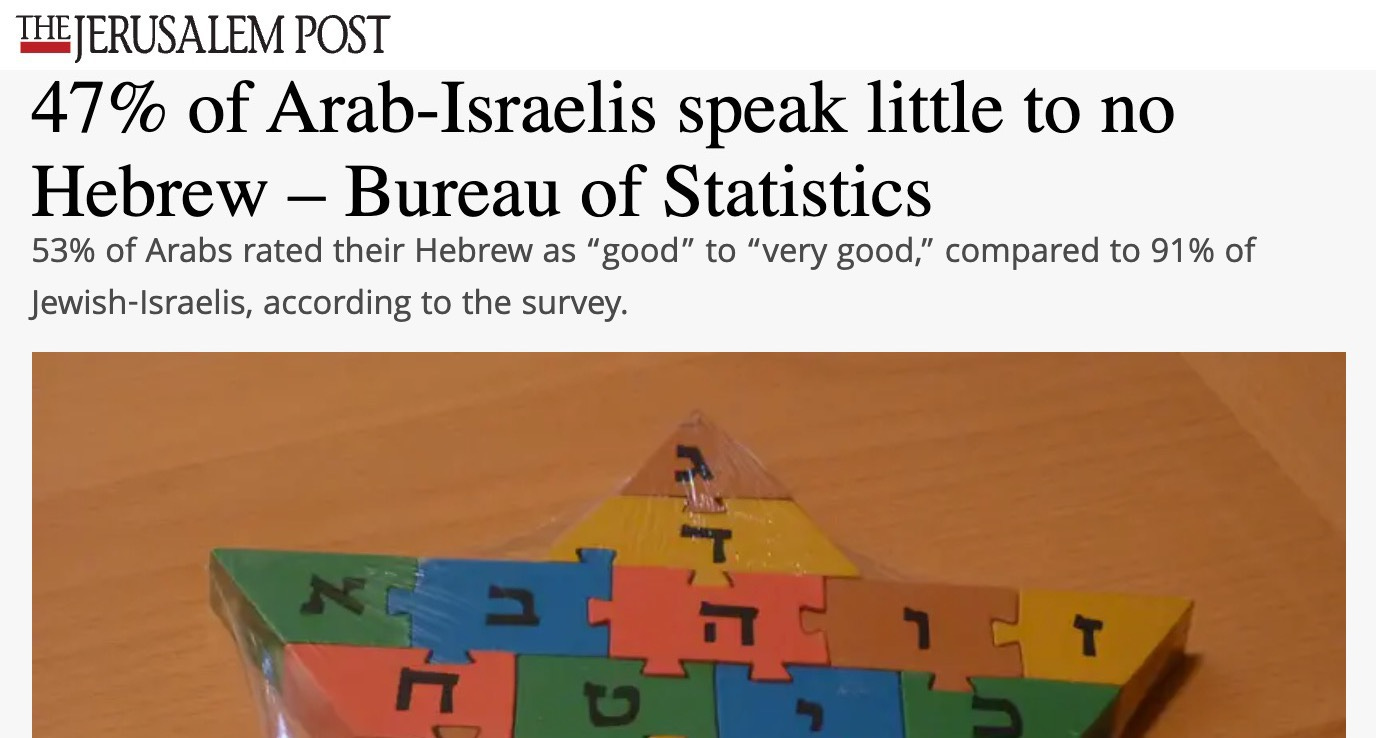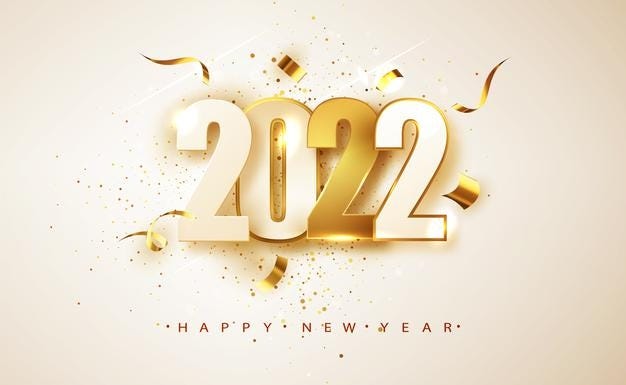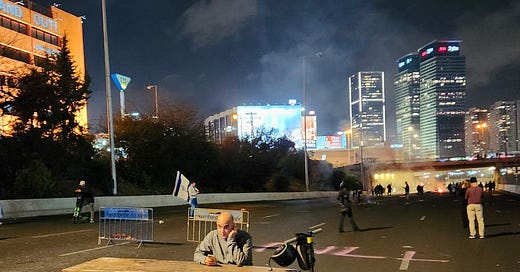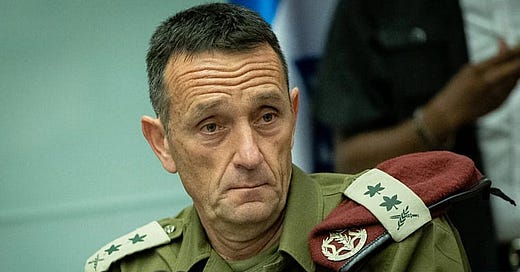
Discover more from Israel from the Inside with Daniel Gordis
For the winter of 2022 ... the Winter of '73 becomes the Winter of '2003 (a Jewish-Arab "duet")
A shot of Israeli optimism on the eve of a new year ....
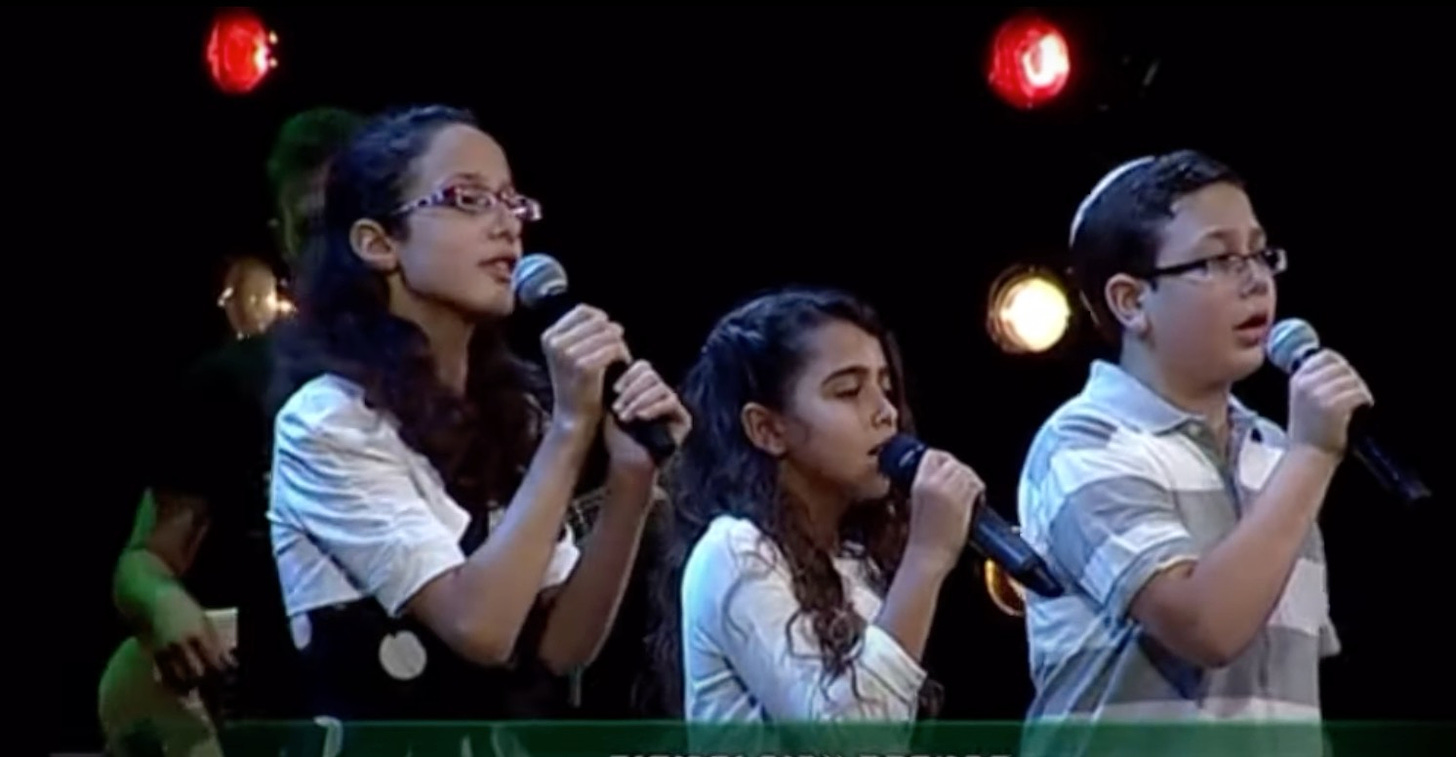
As we embark on a new year, a few moments to revisit the song we looked at last week, “The Winter of ‘73.” Many readers wrote to say how moved they were by the song; one person reminded me of yet another performance (there are many out there) by three kids, a Jewish brother and sister from Jerusalem, and an Arab girl from Ramle, at a performance at the School of Music.
After watching the clip again, I thought it was worth sharing. Their voices are amazing, but there are other moments really worth catching, so here’s the video, and immediately following, a list of moments I think are worth looking out for. And below that, the words of the song again, as they appeared last week.
The moments that merit special attention:
0:26 — Introduction of Ori Koltuv, age 13, from Jerusalem
0:38 — Introduction of Noam Koltuv, age 12, from Jerusalem (these days, Noam is a common name for boys as well as for girls)
0:43 — the Koltuv family watching the two Koltuv kids performing
0:49 — Introduction of Bisan Abu Laben, age 12, from Ramle
0:57 — the Abu Laben family singing along (remember that it’s a song about Israeli losses in the Yom Kippur War)
1:39 — Noam sings the line “hopefully, these children will not have to go to the army”; watch the face of one of the women listening in the audience
3:00 — one of the “judges” is Yehoram Gaon, one of the greatest Israeli singers of all times. Watch his reaction to the raw talent on display
3:28 — they sing “we are the children of that winter of 2003”, because these kids are way too young for 1973. (2003 means that they were born in the middle of the Second Intifada.) Note the reactions of the crowd when they realize that the kids have changed the date.
3:41 — this many years later, the song still evokes tears, and not just for her
4:22 — the two mothers, Jewish and Arab, embracing after their kids perform
The performance is noteworthy, of course, because it included a young Arab girl (and her family) singing a song mourning Israeli losses in the 1973 Yom Kippur War (in which Israel was at war with the Arab world, obviously). It would be harder to imagine a more Israeli moment for a young Israeli Arab girl to participate in—and very publicly.
Is something shifting here? In some ways, yes. To get a sense of the sands that may slowly be shifting, here’s what Mansour Abbas (not to be confused with the PA’s Mahmoud Abbas), the Arab MK who helped make the present coalition possible, said this week:
For a long time, it has been an article of faith among many Israeli Arabs, and certainly almost all of their leadership, that for Israel to be truly fair and democratic, it will have to abandon its definition as a Jewish state. For the overwhelming majority of Israeli Jews, of course, that conversation is a non-starter.
Is something shifting? Quite possibly. Read more about what Mansour Abbas said, in this Times of Israel article shown above. How did the PA and the “other Abbas” respond? You’re not going to be very surprised, but here’s a Jerusalem Post article with coverage.
Seems like things are moving in the right direction, no? Perhaps they are, and we’ll continue to explore that in 2022 in both written columns and in additional podcasts with Israeli Arabs. Yet there are also huge challenges, such as those addressed in this article, which also appeared this week:
This little country is a complicated place, and the purpose of Israel from the Inside is to hold that diamond up to the light and to see its many different refractions. Thanks for joining us on this journey this year.
Due to people’s being busy with family and travel in the US, we’ll continue next week, on Tuesday after the holiday weekend (instead of the usual Monday), and then resume our regular schedule. In the meantime, wishes to all for a joyous, healthy and successful 2022.
Our twitter feed is here; feel free to join there, too.







